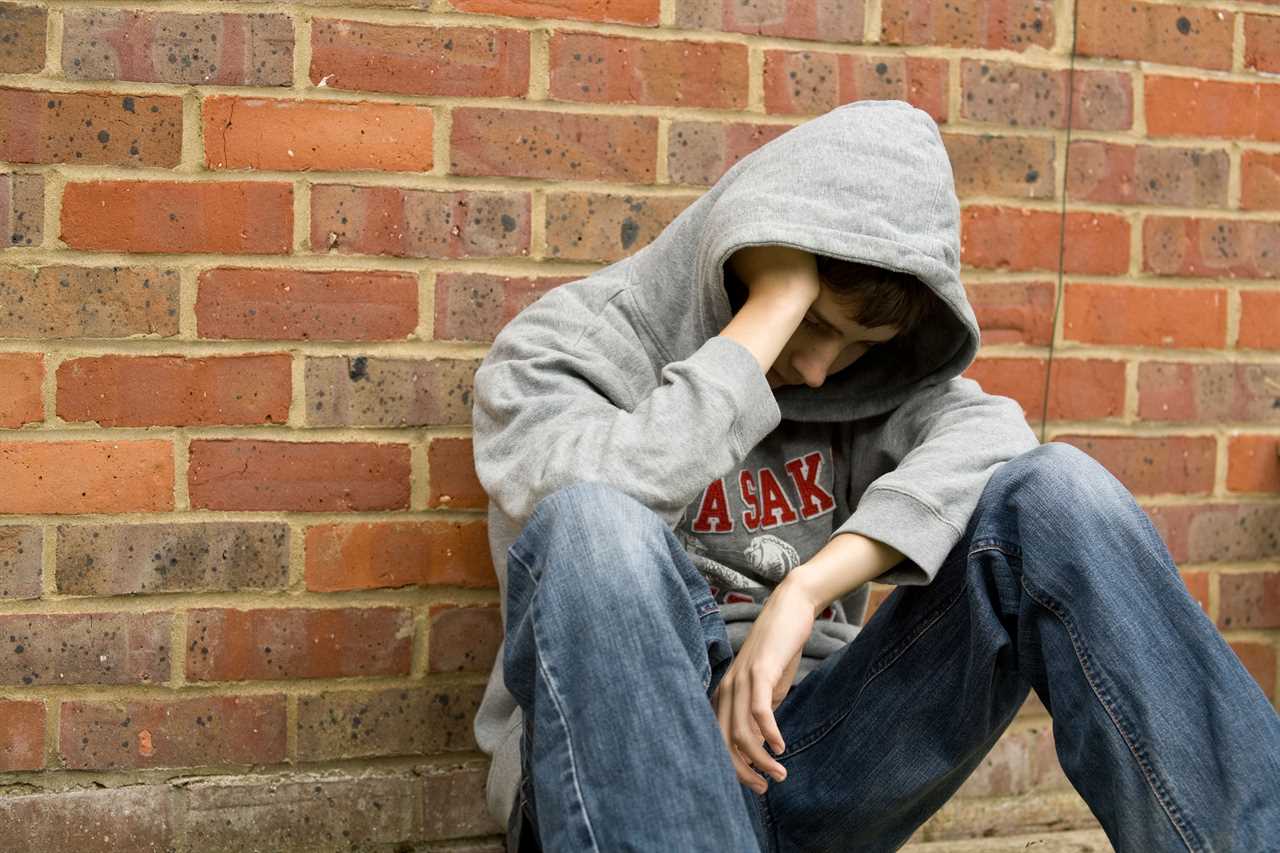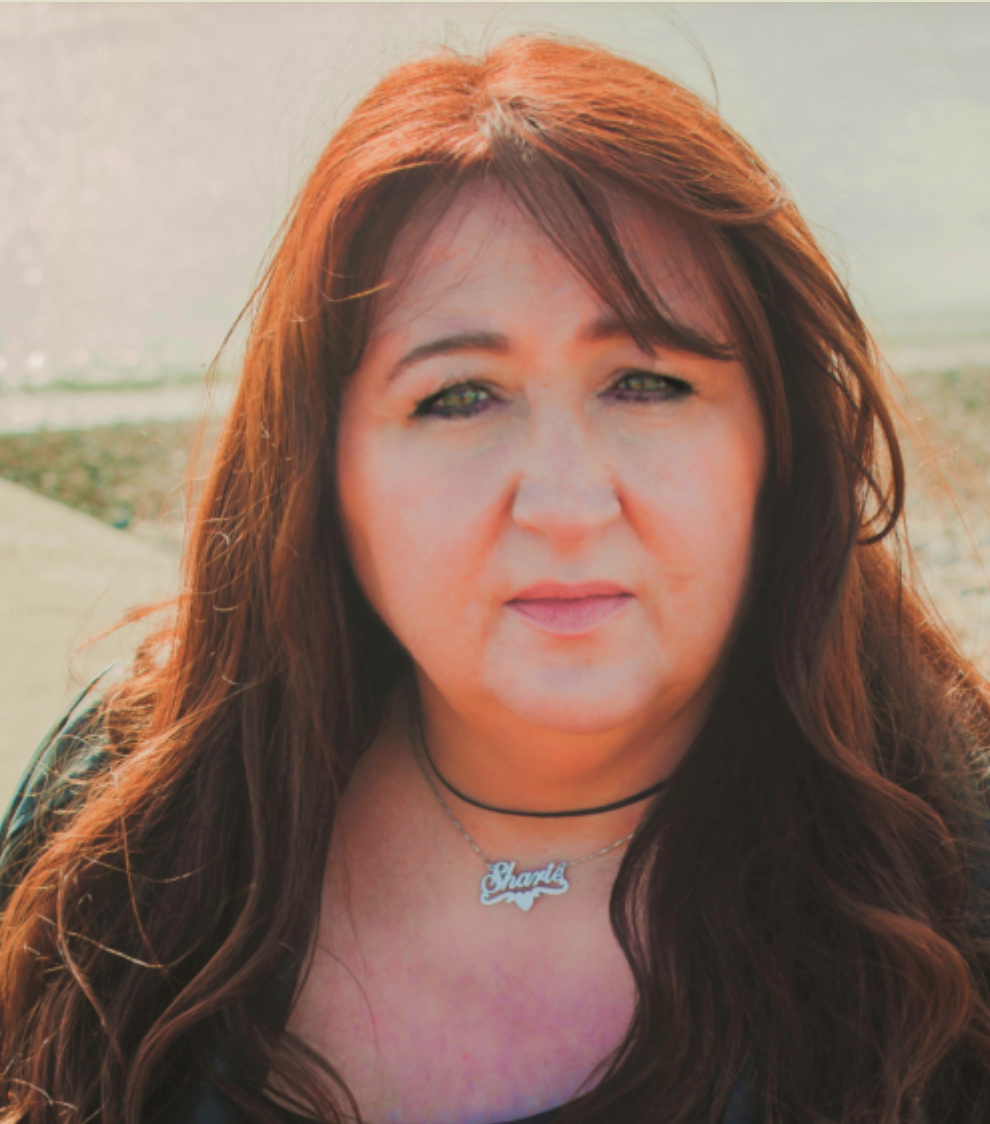KIDS’ and teenagers’ mental health has imploded during the pandemic, with record numbers now prescribed antidepressants.
Fabulous investigates why thousands of young people are not getting the support they need


Mum-of-two Gemma* recoiled in horror as she rolled up her son Toby’s* sleeve and saw a dozen tiny stab marks on his forearm. It was September 2020, and the 14 year old had used his maths compass to wound himself at school as he struggled with Covid-related anxiety.
Toby, now 15, is just one of thousands of children whose mental health has been pushed to the brink since the pandemic began.
“During the first lockdown, he had regular meltdowns, jumping on his bed until it broke, picking holes in the wall or shoving me,” says Gemma, 45, a single mum from the Midlands.
“He was diagnosed with autism aged 11, and when lockdown kicked in, he couldn’t cope with homeschooling. He often said he wished he was dead. When he began self-harming, I felt so guilty that I hadn’t been able to protect him.”
Despite being referred to NHS Children and Adolescent Mental Health Services (CAMHS) nearly a year ago, long waiting lists mean Toby has not yet received any one-to-one talking therapy, which the National Institute for Health and Care Excellence (NICE) recommends as the first choice of treatment for depression and anxiety. Instead, he’s been taking antidepressants – and he’s far from alone.
Recent NHS data reveals that GPs issued a record number of antidepressants to children and teens in the UK in 2020, with 231,791 prescriptions received by 5-16 year olds – up by more than 10,000 on 2019, with the number of prescriptions for children aged 5-12 years old up by 20%.
“There was a crisis in young people’s mental health before the pandemic, but Covid has really accelerated it,” says GP and author Dr Philippa Kaye. “As well as anxiety, depression and low mood, we’ve seen big increases in eating disorders, OCD and self-harm in young people.”
With a record 61,000 referrals to CAMHS in England last November, NHS Digital recently said that one in six children now has a probable mental disorder, compared to one in nine in 2017. And though antidepressant use is climbing in tandem with the sobering stats, the NHS officially advises against under-18s taking them. Its website states: “There’s evidence that, in rare cases, they can trigger thoughts about suicide and acts of self-harm in this age group.”
The site suggests that antidepressants could affect the development of young brains, and instead recommends talking therapies such as counselling and cognitive behavioural therapy (CBT). But because of the waiting lists and the prohibitive cost of private treatment, medication is the only option for many.
“It’s a catch-22 situation, and deeply problematic,” Dr Kaye says. “Antidepressants are not started lightly in children, but GPs may be prescribing them because the wait for therapy is too long.”
For Toby, the arrival of Covid poured fuel on already smouldering mental-health issues. “He began struggling with anxiety aged eight, much of it focused around school. It came and went, but deteriorated once we went into lockdown in March 2020,” says Gemma.
“At the beginning, his school wasn’t doing online classes, and he panicked that he was falling behind. Out of frustration he’d cut the cord of his headphones, smash things, pick fights with his younger sister and push me about. He never meant to hurt me, but he’s a big lad and sometimes it was scary. We had to stay home 24/7, as I was vulnerable because of my severe asthma, so we were totally trapped.”
It was then that Toby started picking at his nails and skin until he bled. Gemma took him to their GP that April, and he was referred to CAMHS. “But the doctor knew we weren’t going to get anywhere fast with that, so he prescribed antidepressants too,” Gemma remembers.
Toby began taking sertraline – used to treat depression, panic attacks, OCD and anxiety. Although Gemma was wary, she says she felt they had no alternative. “I’m a single mum on Universal Credit and couldn’t afford private treatment.”
Although the sertraline helped Toby feel calmer and he didn’t suffer any obvious side effects, September 2020 brought further change with the return to school. “He was very anxious about going back. It was the start of his GCSE year and he realised he was behind his classmates. He worked himself up into such a state.
“A few days into term, he was told to be quiet in a maths class, and started stabbing himself with his compass. He also shouted he would cut his tongue out. His teacher took away his compass, but he hurt himself using sharpened pencils instead. I only found out about this later when a teaching assistant mentioned it – I wasn’t formally notified and feel very let down by the school.”
‘I FEEL VERY LET DOWN’
According to mental-health charity Place2Be, self-harm cases doubled in secondary schools during the autumn of 2020 compared to the previous year.
“There’s been an explosion in the number of young people self-harming, as well as those with eating disorders,” says child psychotherapist Dr Sharie Coombes, whose book Keep Calm! helps kids through Covid stresses using mindful techniques.
“In my 40 years of working with children and young people, it’s the worst I’ve ever seen,” she says. And with NHS services stretched to breaking point, there is unprecedented demand for the private treatment she and other therapists offer. “I’ve never had to turn away people in
the numbers I am right now. The thought of saying: ‘I’m sorry, I can’t help your incredibly distressed child,’ breaks me.”
The Royal College of Psychiatrists recently reported that 200,000 under-18s were referred to CAMHS between April and June this year, up 134% on the same period in 2020.
But according to The Children’s Society, 34% of those referred are not accepted for CAMHS treatment – due to a complex system of tiered thresholds. Damningly, former Children’s Commissioner for England Anne Longfield, who stood down in February, warned in her final report that mental-health services are “nowhere near meeting the needs of many hundreds of thousands of children.”
Toby was finally assessed by a CAMHS specialist in November 2020, but is still waiting for one-to-one support. “We have no idea when he’ll be seen. I’ve lost hope and have had to stop working due to the stress,” says Gemma. “I live in fear of another lockdown. I dread to think what Toby would do if he had to be homeschooled again.
‘WORST I’VE EVER SEEN’
He is still on medication and occasionally self-harms. However, moving to a specialist school in January has helped a lot. He likes the routine there and feels more supported.”
Claire’s* son James*, 11, developed OCD during the pandemic. “We first noticed it last July, a few weeks after the first lockdown ended,” says the 43-year-old stay-at-home mum, from London. “James began walking strangely, taking five steps and then marching on the spot 10 times before carrying on.”
Claire and husband Simon*, 45, a TV executive, initially dismissed it as a childish quirk, but then his behaviour grew more compulsive.
“He’d insist on having his left curtain drawn slightly over the right, and would always turn his water bottle and coaster a certain way round. Then he started placing all 10 fingers on his toothbrush while doing his teeth, and all 10 fingers on light switches. He’d say: ‘If I don’t do it like this, something bad will happen,’” she remembers.
When he began to fear a stranger was hiding under his bed, Claire realised the problem was getting out of hand. “Some days I’d find him crying in the shower, and he’d say: ‘I hate myself, Mummy. Make it go away. I can’t stop it.’ It was devastating.”
Although James had shown a tendency for anxious behaviour since the age of four – including worrying about being late or what teachers and classmates thought of him – he’d never been diagnosed with any condition, but Claire believes the effects of lockdown brought it to the fore.
“I realised Simon and I had talked about Covid non-stop. We watched the press conferences with the kids around, and news of death was ever-present in their lives. In hindsight, we should have shielded them, but it was hard not to get swept up in it all.”
‘I HATE MYSELF’
Dr Coombes says the sense of uncertainty the nation felt was highly detrimental to children.
“Kids saw that their parents didn’t know what was going on – and nor did the politicians in charge. When scary, out-of-control things happen, our brains like to take back control. So we use behaviours like lining things up in a particular order, which makes us feel safe.”
Claire and Simon made the decision to pay for private therapy for James, and in August 2020 he began a 10-week course of CBT, which aims to break down negative thoughts and feelings, at £125 per session.
“We’re one of the lucky families who could go private as we had saved money during lockdown with not going on holiday. But for others, waiting on the NHS or having no option but to try antidepressants must be a nightmare,” she says.
Thankfully for James, by the end of treatment he’d stopped all OCD behaviours. “If we hadn’t been able to get him help so quickly, I think he’d be a very different, very unhappy boy right now,” adds Claire.
In more recent months, their daughter Chloe*, eight, has also begun showing signs of OCD.
“She may have picked it up from her brother, but she’s also very alert to what people say at school or on TV,” says Claire. “We’ve tried to protect them both from the news more recently, but at that age they miss nothing.”
This summer, Chloe started picking her skin until it bled. “At one point she had 100 marks on her body,” says Claire. “She also has to stroke our cat the same number of times with each hand, and she’s obsessed with washing her hands.”
Claire is guiding Chloe through a self-help book that James found helpful, but if her issues continue, she will have CBT too.
“Our experience shows how harmful the pandemic has been to children. We’re supposedly getting back to normal now, but it seems like their mental health is still a ticking timebomb.”
When it comes to ensuring children are better supported in the future, there appears to be no clear solution.
‘TICKING TIMEBOMB’
“While things have definitely got worse because of Covid, the underfunding of CAMHS is not a new issue,” says Dr Kaye.
“We need more trained mental-health nurses, more child and adolescent psychiatrists, more CBT psychologists and psychotherapists and more access to family therapy. It would also be good to see basic CBT, mindfulness and breathing techniques taught within the school curriculum, but all of these things will take time. It won’t happen overnight.”
Still facing an indefinite wait for support, Gemma has found charities to be a lifeline – including Not Fine In School, which supports parents of children struggling in education.
“Without them and close friends, I don’t know where I’d be,” she says. “I have to try to keep things stable at home for Toby’s sake, but it’s hard to have any faith in the system. Who knows what toll this will have on him and others like him in years to come? His mental health could be damaged forever.”
For further information and support, visit Notfineinschool.co.uk, Mind.org.uk and Youngminds.org.uk.
*Names have been changed







